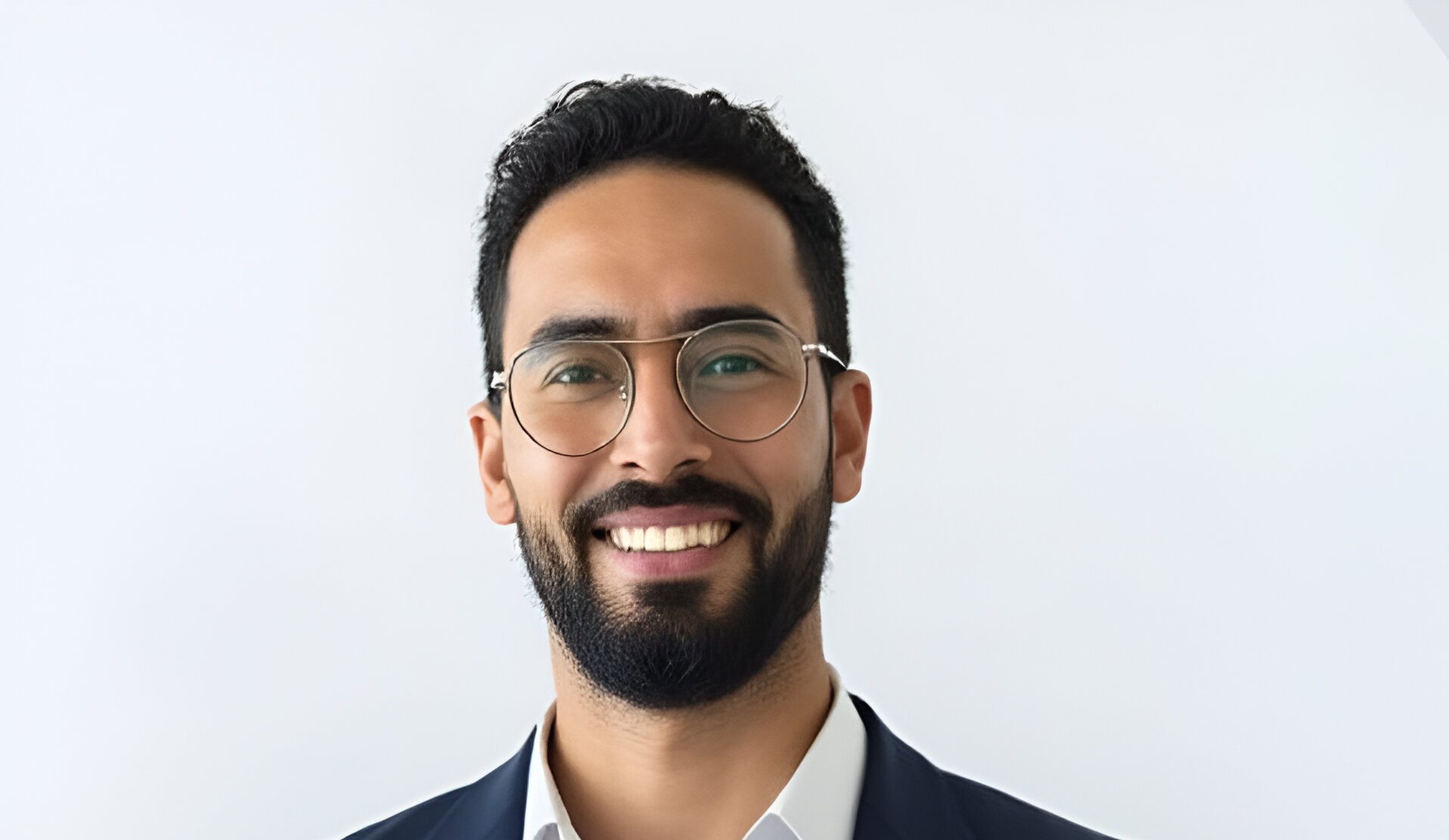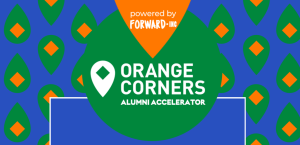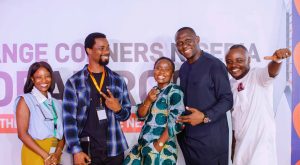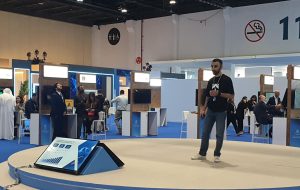Meet Zakarya Baicha. Hailing from the water-scarce region of southern Morocco, Orange Corners Morocco alum Zakarya learned from a young age just how precious H2O can be. With a PhD in environmental engineering and over a decade of experience in the sector under his belt, he decided it was time to make a more serious splash in the wonderous world of water. To get people thinking about water reduction, before talking about wastewater treatment. His mission? To provide easy and cheap water reduction solutions that don’t sacrifice the comforts we’ve grown so accustomed to. We spoke to Zakarya about his passion for water and his startup, H2Oasis.
Zakarya, lovely to meet you! Could you introduce yourself and H2Oasis?
My name is Zakarya Baicha. I’m originally from the south of Morocco, a region where water scarcity has been a longstanding challenge. Growing up, I witnessed firsthand the importance of water: whenever it rained, my community would quickly harvest rainwater using traditional methods, and wasting water was not just frowned upon, but met with punishment. This deep appreciation for water and its vital role in our daily lives fuelled my passion for finding solutions to water-related challenges.
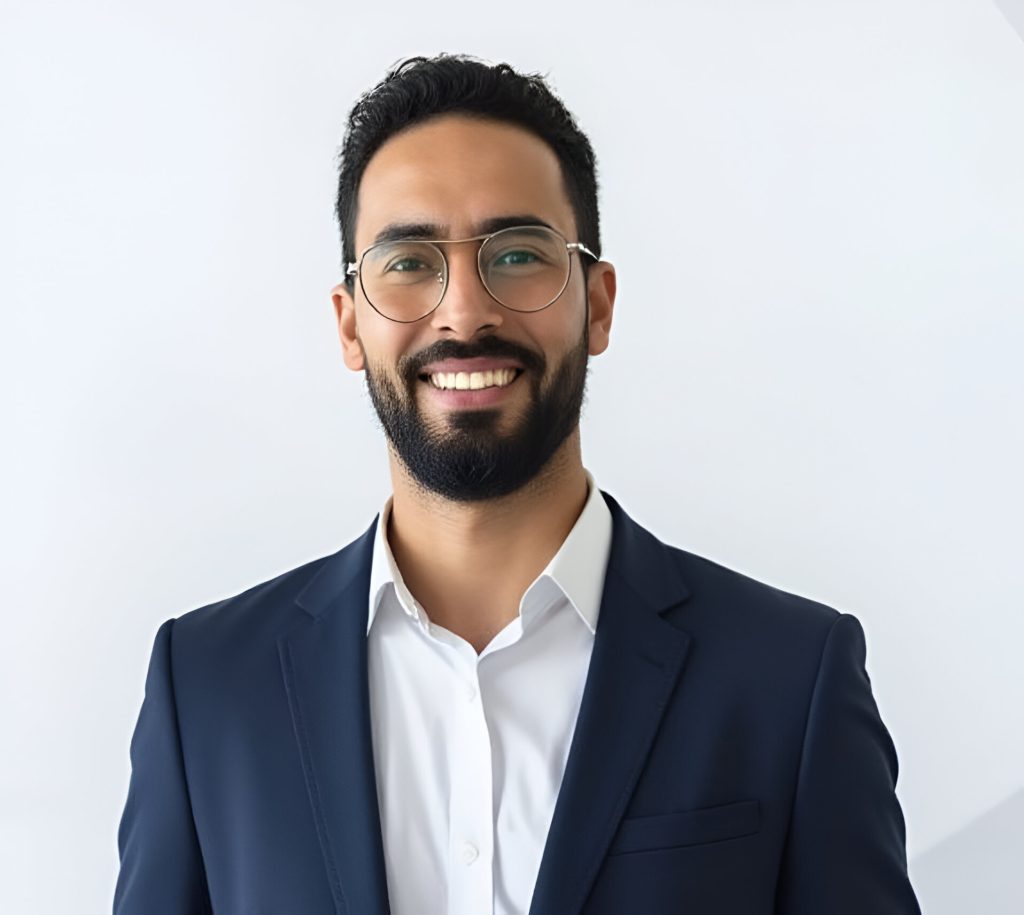
My experiences led me to pursue a PhD in environmental engineering, specialising in water, sanitation and waste management. Over the past 12 years, I’ve had the privilege of working with organisations like GIZ, UNDP, the World Bank and the UN-ESCWA addressing critical issues around water access, sanitation and sustainability. And while important work is done on wastewater treatment and reuse, I realised that water conservation itself was often overlooked.
This realisation motivated me to found my own startup, H2Oasis. I saw a clear gap in the market for practical, scalable solutions that help people reduce their water consumption. While the government recognises the importance of conservation, effective solutions for everyday users were lacking. So, I set out to develop technologies that make water-saving easy and accessible—without compromising comfort.
At H2Oasis, we’ve created affordable and easy-to-install devices that can reduce water usage up to 60%, without the need to replace taps, toilets or showerheads. Our devices work seamlessly with existing fixtures, so households, businesses and institutions can easily implement them. Whether it’s a hotel or a hospital, replacing entire systems isn’t always feasible, but our solution allows for immediate impact with minimal disruption.
There’s nothing else on the market that can achieve our 60% water reduction
Zakarya Baicha, H2Oasis
So what’s the difference between this device and what I’d have in my shower at home?
Water reduction devices aren’t new, but our two-step water pressure regulation system is a unique innovation. Our devices are currently undergoing the patent process, and there’s nothing else on the market that can achieve the same 60% water reduction. We build upon existing technology, but introduce an additional layer that significantly enhances efficiency.
At H2Oasis, we currently focus on B2B sales, targeting institutions with the highest water consumption, such as hotels, hospitals, mosques, public institutions and schools. We conduct water audits, identify opportunities for savings and provide tailored recommendations. Our clients are highly receptive to these solutions, as they see immediate potential for impact.
For example, hotels committed to sustainability quickly recognise the value of our products. In many cases, I don’t even need to pitch: simply explaining our mission is enough to close the deal.
While our current focus is on reducing water consumption, we often get questions about water quality as well. As a young startup, we prioritise solutions that are simple and easy to implement, but we’re also exploring innovations in water quality. Though we don’t yet offer water quality solutions, I have a strong network of companies specialising in this field and can connect clients with the right experts when needed.
Clients quickly recognise the value of our products. Sometimes I don’t even need to pitch: simply explaining our mission is enough!
Zakarya, H2Oasis
You recently won OCIF. What’s going to happen with the OCIF money?
My next step is to expand the H2Oasis team by hiring at least two more people. The market demand for our products is growing, but to effectively commercialise them, we need additional capacity to engage clients and conduct consultancies.
I also plan to explore local manufacturing options. Currently, our devices are produced in Europe, which is quite costly. Unfortunately, there is no Moroccan company capable of manufacturing to the same high standards as in Europe or China. However, I’m eager to find a local partner who can meet our quality requirements while reducing production costs. Collaboration with Dutch companies is also an attractive option, as the Netherlands is a global leader in water technology.
Collaboration with Dutch companies is an attractive option, as the Netherlands is a global leader in water technology
Zakarya, H2Oasis
What’s next for you now after Orange Corners?
I’m currently participating in the Tamwilcom programme, an initiative of the Moroccan government designed to support startups. It’s an intensive two-month programme that culminates in a pitch to a jury, similar to Orange Corners. The prize is 200,000 dirhams, with the amount doubled if you have a patent. For a young startup like ours, such funding is crucial during our early stages.
However, I recognise that relying solely on grants isn’t a sustainable long-term strategy. Entrepreneurs who focus only on securing grants without prioritising long-term business growth will eventually run out of funding opportunities. Programmes like Tamwilcom, which are shorter and more intensive, suit me better. In contrast, Orange Corners lasted six months, which was quite demanding given my work commitments across Morocco. While I never missed a single session, it required significant time and energy. I believe the programme could have been condensed into two months without losing its impact. Running a startup requires balancing learning with day-to-day operations.
Except money, what more do you need now to scale?
When you ask an entrepreneur what they need, the answer is often “money.” While funding is certainly necessary to scale a business, I believe it’s not the most important factor for long-term success. Over the next few years, my goal is to expand internationally, and to do so, building strong partnerships is essential.
I’m actively seeking partnerships across three key areas: manufacturing, to collaborate with companies capable of scaling production efficiently; research and development, to work alongside universities and research centres specialising in innovative water technologies; and sales/commercialisation, to partner with experts who can drive business development, complementing my technical expertise with commercial strategy.
One of the most valuable aspects of the Orange Corners programme was learning about the business side of running a startup. Before the programme, I didn’t have a well-structured financial or business plan. Now, I have a clearer roadmap and a great network of Orange Corners entrepreneurs with whom I can collaborate in the future.
I’m actively seeking partnerships across three key areas: manufacturing, research and development and sales/commercialisation
Zakarya, H2Oasis
To round it off: you took part in the Marrakesh edition of La Caravane. What’s the startup ecosystem like in Marrakesh?
Marrakesh is quite different from cities like Casablanca, Rabat or Tangier. The majority of startups here are focused on tourism-related sectors, given the city’s economic landscape. While there are a few working on water and waste management, the numbers are limited, and some startups focus more on handicrafts than technology-driven solutions.
If I want to connect with experts in water management, I typically need to go to Casablanca or Rabat, where the startup ecosystem is more developed and where many international organisations and embassies are based.

